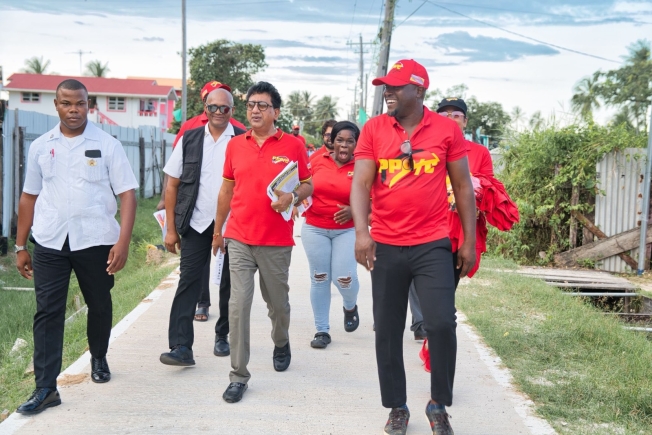
Guyana heads to pivotal elections as oil wealth shapes debate
Guyana is gearing up for General and Regional Elections on September 1, in what observers describe as one of the country’s most consequential votes since the discovery of vast oil reserves.
With oil revenues now transforming the state’s finances, the election is being framed as a choice between sustaining rapid development and addressing persistent challenges of inequality, governance, and political division.
The ruling People’s Progressive Party/Civic (PPP/C), led by President Irfaan Ali, is seeking another mandate on the back of an ambitious development agenda. Since 2020, the government has channelled oil wealth into major infrastructure projects, a housing drive, expanded healthcare and education, and wage increases for public sector workers. New highways are linking remote regions to the capital, hospitals are under construction, and tens of thousands of housing plots have been distributed.
“The PPP/C isn’t just talking development—they’re doing it,” said James Bond, a political activist and businessman who has aligned himself with the ruling party’s campaign. “You can’t ignore the roads, the housing drive, the wages. That’s not talk—that’s delivery.”
Bond’s remarks reflect the wider debate dominating the campaign: whether the government’s stewardship of oil resources and visible development outweigh concerns about rising living costs and doubts over long-term sustainability.
The main opposition, A Partnership for National Unity (APNU), led by Aubrey Norton, has pledged to chart a different course, but internal divisions have raised questions about its readiness. Bond has been especially critical, arguing that the stakes are too high for voters to back a fractured opposition. “If you believe Norton can carry this nation forward, then you’re not serious about your children’s future,” he warned.
The significance of the poll is amplified by Guyana’s history of contested elections. The disputed 2020 vote triggered months of turmoil and drew intervention from international organisations before results were finalised. This year, observer missions from the Carter Center, the Organisation of American States (OAS), and Caricom are expected to monitor proceedings to safeguard credibility.
Members of the military and police cast their ballots early on 22 August in a process that officials reported went smoothly. Their participation is regarded as an early indicator of wider voter sentiment, particularly on issues of trust and stability.
President Irfaan Ali and Vice President Bharrat Jagdeo have centred their campaign on continuity, stressing their record of delivery and their commitment to ensuring that “no community and no citizen is left behind.” Targeted subsidies, cash transfers, and programmes for youth and women have been showcased as evidence of inclusive growth.
Analysts suggest the 2025 vote is effectively a referendum on the PPP/C’s first five years of managing oil wealth. With revenues projected to reach billions annually, expectations among citizens remain high. Bond, who described the election as “a test of maturity” for both parties, said the overriding priority must be using oil wealth to uplift lives. “This is about healing Guyana. We can’t afford to fight over the spoils of oil. We must build a country where every citizen—whether in Georgetown, Lethem, or Linden—feels the benefit.”
As campaigning intensifies, Guyana’s election is being closely monitored across the region and internationally. For a country long marked by political and ethnic divides, the 2025 polls represent not only a contest of leadership but a test of whether newfound oil wealth can underpin unity and sustainable progress.
